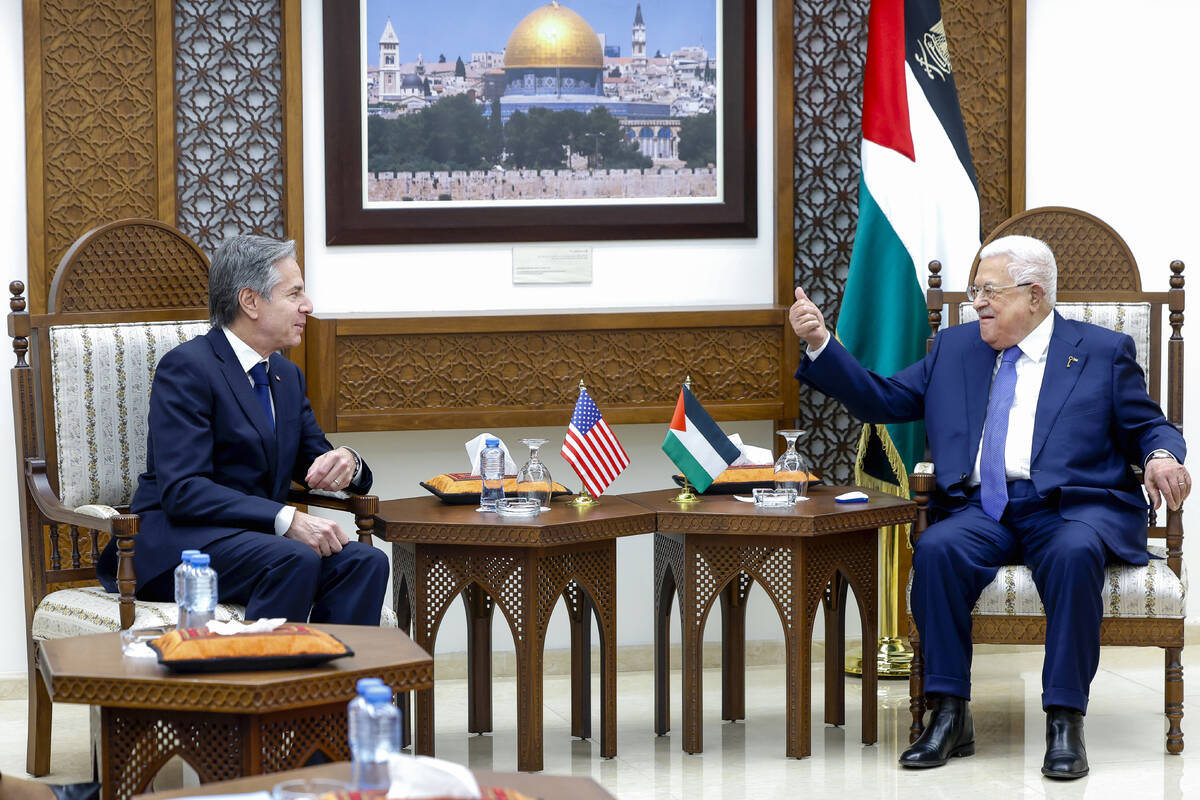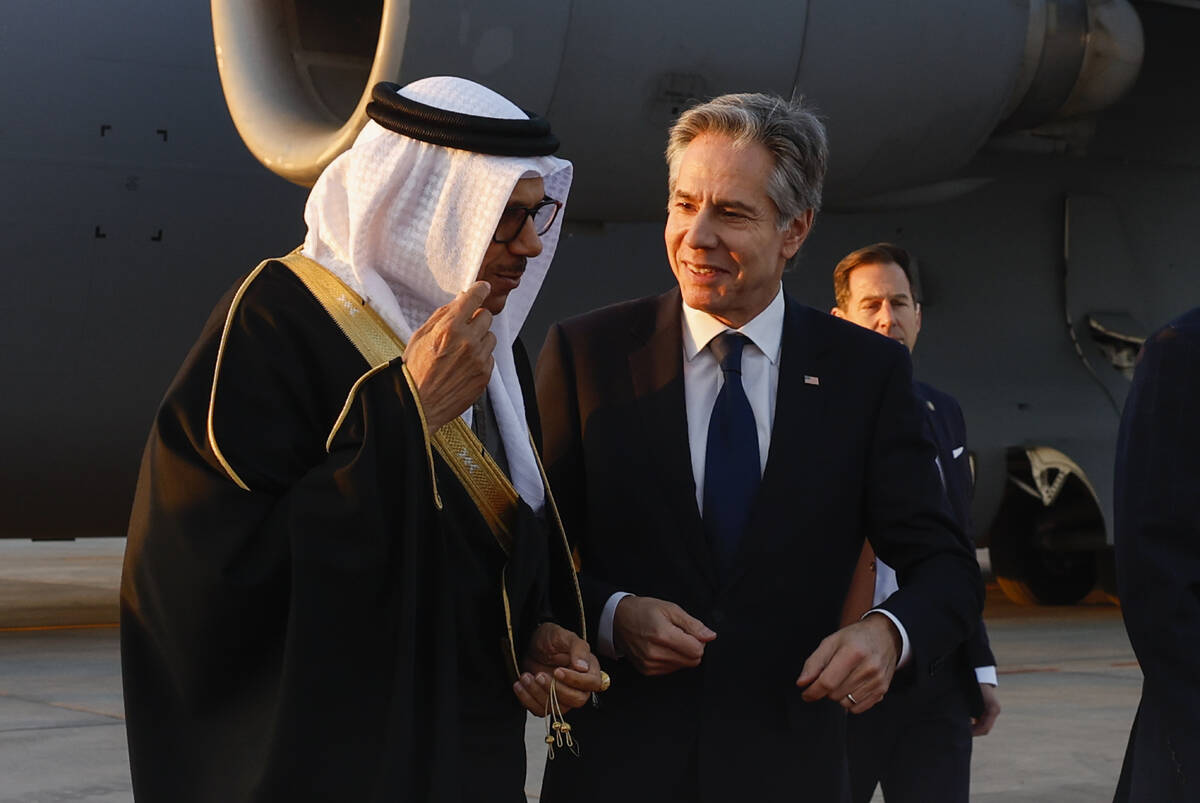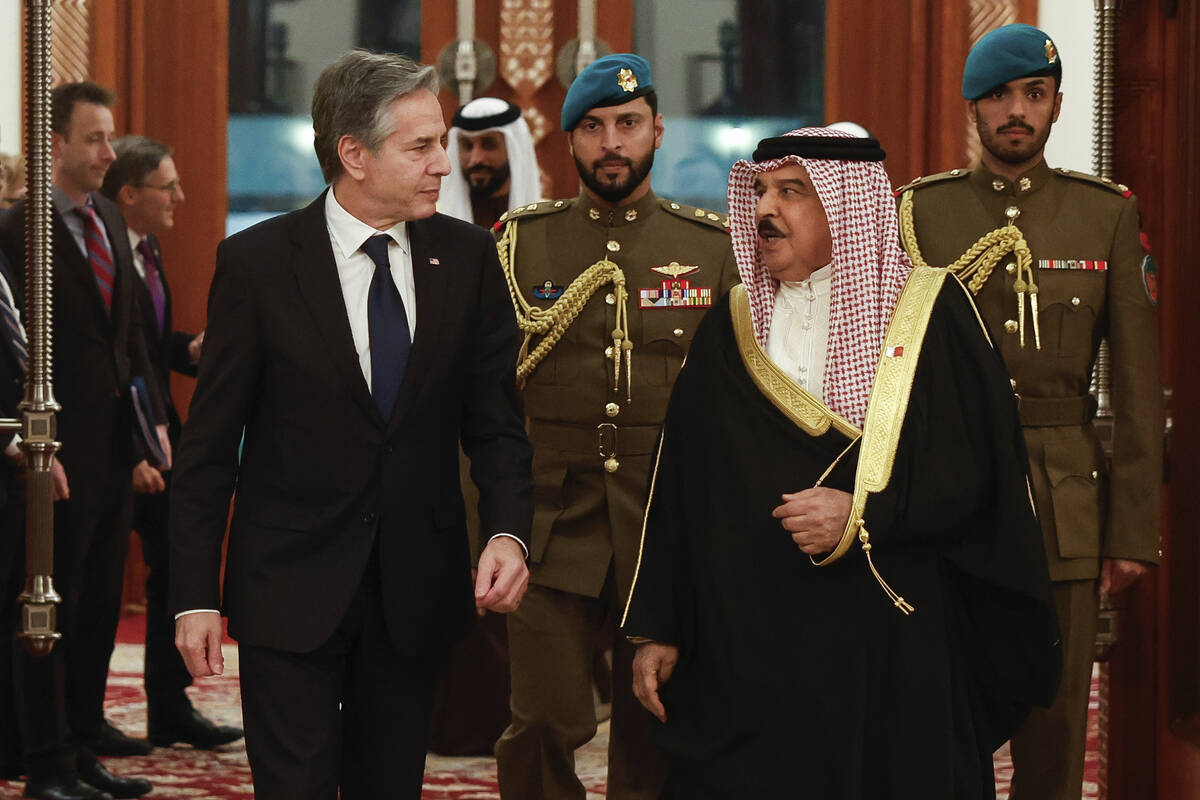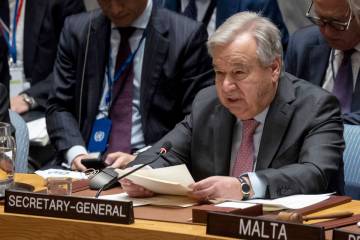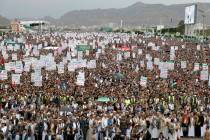Blinken seeks reforms by Palestinians as part of postwar Gaza plans
TEL AVIV, Israel — Secretary of State Antony Blinken pressed the Palestinian president Wednesday to reform his government, seeking to rally the region behind postwar plans for Gaza that include concrete steps toward a Palestinian state.
The U.S. wants a reformed Palestinian Authority to govern Gaza once the war is over. Getting President Mahmoud Abbas on board, as well as other Arab countries the U.S. hopes will help rebuild Gaza, depends on promising movement toward a Palestinian state after years of a defunct peace process.
But the vision outlined by Blinken faces serious obstacles.
Israeli Prime Minister Benjamin Netanyahu’s government has so far rejected Palestinian Authority control in Gaza and adamantly opposes the creation of a Palestinian state alongside Israel. The autocratic, Western-backed Palestinian leadership, whose forces were driven from Gaza when Hamas took over in 2007, lacks legitimacy in the view of many Palestinians.
The war in Gaza is still raging with no end in sight. Israeli strikes on Wednesday hit an ambulance and a building near a hospital in central Gaza, killing some two dozen people, health officials said.
The fighting has also stoked escalating violence between Israel and Lebanon’s Hezbollah terrorists that has raised fears of a wider conflict.
Blinken pressures both sides
On his fourth visit to the region since the war began three months ago, Blinken has met in recent days with the leaders of Saudi Arabia, Jordan, Qatar, the United Arab Emirates and Turkey. He says they have agreed to help rebuild the territory and that wider Israeli-Arab normalization is still possible, but only if there is “a pathway to a Palestinian state.”
The Saudi ambassador to the U.K. went even further Tuesday, telling the BBC that the kingdom is still interested in a landmark normalization agreement with Israel, but that it must include “nothing less than an independent state of Palestine.”
“One doesn’t come without the other,” Prince Khalid bin Bandar said.
In their meeting in the West Bank city of Ramallah, Blinken told Palestinian President Abbas that the U.S. supports “tangible steps” toward a Palestinian state, according to State Department spokesman Matthew Miller.
Blinken said later that they discussed reforming the Palestinian Authority so “it can effectively take responsibility for Gaza.” Abbas appeared ready to “engage in all of these efforts,” Blinken said at his next stop, the Bahraini capital of Manama.
Abbas spokesman Nabil Abu Rudeineh said they heard “good statements” from the Americans. “But nothing has happened,” he said. “The priority now is to stop the war on Gaza.”
The 88-year-old Abbas has not stood for election since 2005 and lacks support among his own people.
His Palestinian Authority governs parts of the West Bank under interim peace deals reached in the 1990s and cooperates with Israel on security matters. But it has been powerless to prevent the expansion of Israeli settlements in territory it wants for a future state, and there have been no serious or substantive peace talks since Netanyahu returned to office in 2009.
President Joe Biden’s administration has been unable to get Israel to make concessions to the Palestinians, such as turning over all the tax revenue it collects on their behalf or allowing the reopening of a U.S. Consulate to serve Palestinians in east Jerusalem.
After meeting with Netanyahu and other top Israeli officials Tuesday, Blinken delivered a stark message, saying Israel must stop undercutting the Palestinians’ ability to govern themselves with its expansion of settlements, home demolitions and evictions in the West Bank.
War rages on
Israel has vowed to keep fighting until it crushes Hamas and returns scores of hostages held by the group after its Oct. 7 terrorist attack that triggered the war. Israeli officials say the campaign will continue through the rest of the year. Israel’s own postwar plans call for open-ended military control over the territory, from which it withdrew soldiers and settlers in 2005.
Some members of Netanyahu’s government have called for Palestinians in Gaza to be resettled elsewhere.
Blinken said the U.S. was opposed to any such scenario and that resettlement is not the policy of the Israeli government. He also said he had secured agreement on a U.N. inspection mechanism in northern Gaza to evaluate how and when people who have fled can return.
The military is now focusing major operations on the southern city of Khan Younis and built-up refugee camps in central Gaza.
On Oct. 7, Hamas terrorists overwhelmed Israel’s defenses and stormed through several communities, The terrorists killed some 1,200 people, mainly civilians. They abducted around 250 others, nearly half of whom were released during a weeklong cease-fire in November.
Since the war began, Israel’s offensive has killed more than 23,300 Palestinians, according to an update issued Wednesday by the Hamas-run Health Ministry in Gaza. The death toll does not distinguish between combatants and civilians.
The Israeli military says it tries to avoid harming civilians and blames the high toll on Hamas because the terrorists fight in densely populated areas. Israel says it has killed some 8,000 terrorists and that 186 of its own soldiers have been killed in the offensive.
Shurafa reported from Deir al-Balah, Gaza Strip, and Jeffery from Cairo. Associated Press writers Najib Jobain in Rafah, Gaza Strip, and Samy Magdy in Cairo contributed to this report.



